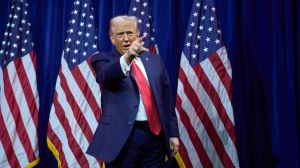CTT and 12 service tax to push up costs
Though finance minister played his cards well by removing the Cash Withdrawal Tax...

Though finance minister played his cards well by removing the Cash Withdrawal Tax, he managed to irk commodity traders and exchanges by introducing a Commodity Transaction tax CTT. Along with the CTT 8212; on the lines of securities transaction tax STT levied in the equities markets 8212; Chidambaram has also proposed a 12 per cent service tax on commodity exchanges. Multi Commodity Exchange8217;s MD and CEO Jignesh Shah said, 8220;An incidence of 12 per cent service charge and Rs 17 per lakh for commodities trading will increase the cost by more than 800 per cent. The additional costs will make our market inefficient compared to similar global markets.8221;
When STT was introduced in the securities markets, investors were given two benefits: One of long-term capital gains and secondly futures income loss was treated as normal business income loss. 8220;Keeping in mind the cost sensitivity of trade, without the advantages given to the stock markets, we think Indian commodity market will become inefficient and business will migrate from regulated exchanges to international markets or unofficial local market,8221; said Shah.
However, broking houses have welcomed the step by the finance minister. 8220;This shows an increasing interest of the government in expanding the commodity futures markets in line with equity markets and is a reiteration of the fact that investing in commodities is now an accepted investment avenue like in developed countries. It will also increase tax-compliance by default because the tax will be levied at the time of trading itself,8221; said Jayant Manglik, head of commodity business, Religare Commodities Ltd.
End of cash withdrawal tax
When Chidambaram had proposed the Banking Cash Transaction Tax BCTT in 2005, he had faced criticism from one and all. BCTT, initially, was a 0.1 per cent tax on a cash withdrawal above Rs 10,000, which made it a nightmare for all ATM card users. The FM was of the opinion that the tax would prevent money from flowing into the black market unaccountable economy. Later when the Finance Act 2005 was passed the limit was raised and it provided for a 0.1 per cent levy on 8220;taxable banking transaction8221;. Such transactions included cash withdrawal of more than Rs 50,000 for individuals and HUFs and Rs 1,00,000 for others in a single day from accounts other than savings bank account maintained with any scheduled bank.
Besides, the levy was also applicable on single-day cash receipt exceeding Rs 50,000 for individuals and HUFs and Rs 1,00,000 for others on encashment of one or more term deposists, whether on maturity or otherwise.
February 29, however, was a different day. The FM said BCTT will be withdrawn with effect from April 2009.
- 01
- 02
- 03
- 04
- 05































